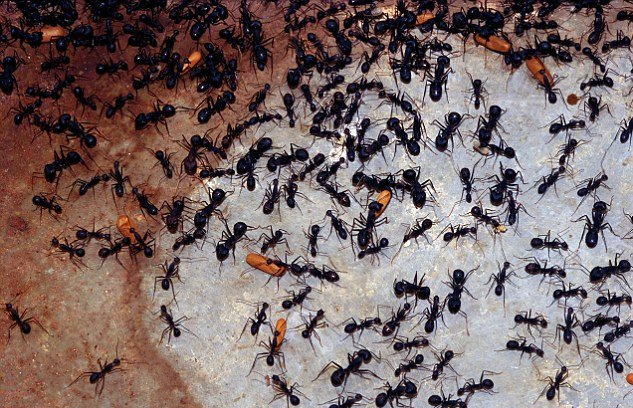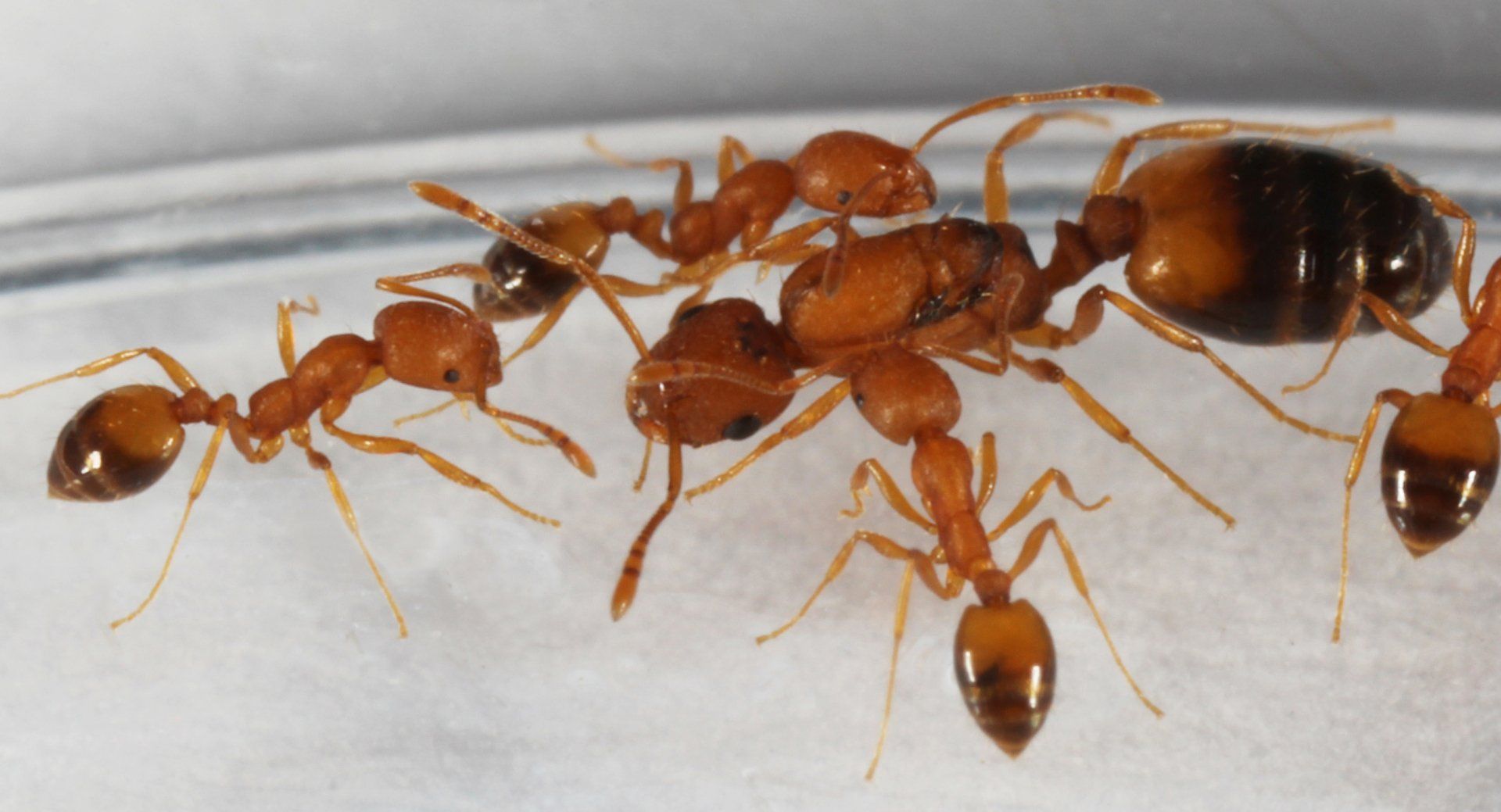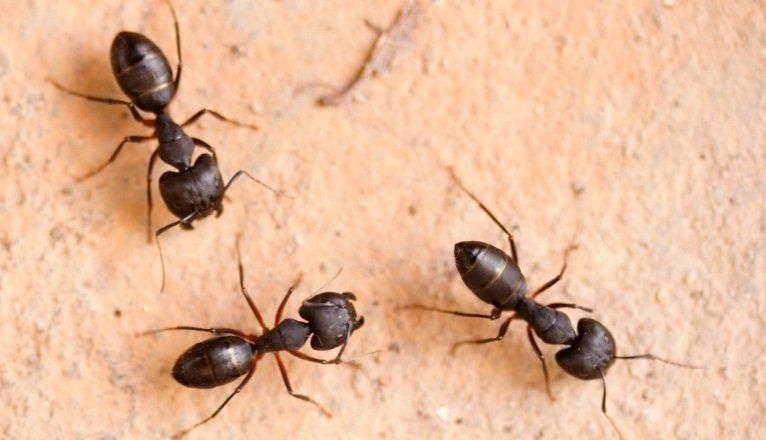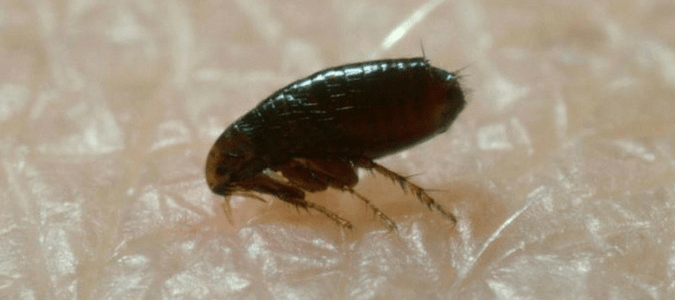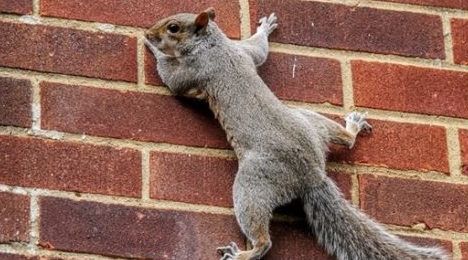Ant Information
ANTS
There are more than 8000 known species of ants. They differ greatly in the way that they construct their nests, form their colonies and obtain their food. Most ants are beneficial, scavenging on waste material and on other insects. Some, however, are pests and need to be controlled. The Pharaoh’s Ant, Monomorium pharaonis is one such species which, once introduced into premises can be extremely troublesome and difficult to remove. The Black Garden Ant, Lasius niger, is another species which, although generally found outdoors, can enter buildings in search of sweet foodstuff.
NUISANCE FACTOR
The workers of both species are often a considerable nuisance when foraging for food or water along scent-marked trails. They feed on most foodstuffs, Pharaoh’s ants, preferring proteinaceous foods like meat, cheese and fats, the garden ant favouring sweet materials. Pharaoh’s ants also infest hospitals, feeding on blood, intravenous liquids, bodily excretions and sterile and soiled dressings. They commonly chew on materials and packaging and can even bite children. Clearly they pose a serious threat to health as vectors of pathogenic organisms. Black ants mass round sweet foods in the home but are a nuisance outside too. They excavate the soil, making it dry whilst simultaneously helping to cultivate greenfly to feed on the sweet secretions the greenfly produce whilst feeding.
PHARAOH’S ANTS
Pharaoh’s ants are social insects. Each member of the colony, (which can range from a few dozen to 300,000), has a particular function to perform within the community. The colony will consist of sterile female workers, sterile males and fertile queens – of which there can be many. Nests are established by a newly-mated queen which remains within the confines of the nest. The first batch of eggs hatches, producing grub-like larvae. The queen will then feed them for three weeks until they pupate. Adult ants emerge around 10 days later and take over the task of rearing subsequent batches of eggs. About 10% of workers forage for food, the remainder continue rearing and building the nest. The whole cycle from egg laying to adult takes about 5 weeks. Another way in which new colonies are formed is by a process known as budding and this can occur when a nest is disturbed (e.g. by use of residual insecticides), prompting the adult ant to carry larvae to a new site, from which they will rear queens and males.
Experienced Technicians
RSPH Level 2 Technicians.
Qualified in Environmental Health Regulations.
Qualified in Health and Safety Regulations.
CRB Checked.
Discreet Service
We do not use sign written vehicles
and will be discreet at all times when
dealing with your pest problem
How to contact us
You can always fill out the quote form. Alternatively, there are plenty of other options below...
Request a Free Quote
Before you go down the DIY route,
why not give us a call to see how we can help?
Or submit your request and we'll get back to you soon.
You have nothing to lose!
Sign up to our newsletter
Call Us
The old fashioned way is still the best!
Please give us a call and let one of our friendly, knowledgeable staff discuss how we can help
01622 355775
Email Us
Of course, if you want to email us instead, you can either complete the contact form or email us directly
Follow Us
Our Services
View more
Request a Free Quote
Before you go down the DIY route, why not give us a call to see how we can help?
Or submit your request below and we'll get back to you soon with our very best quote.
You have nothing to lose!
Contact us
Discreet Service
We do not use sign written vehicles and will be discreet at all times when dealing with your pest problem
Guarantee
7am - 7pm 7 days a week. Fast, local service.
Competitive prices.
Prompt Reliable
Qualified
RSPH level 2 Technicians.Qualified in Environmental Health Regulations.
Qualified in Health and Safety Regulations.
CRB Checked.

